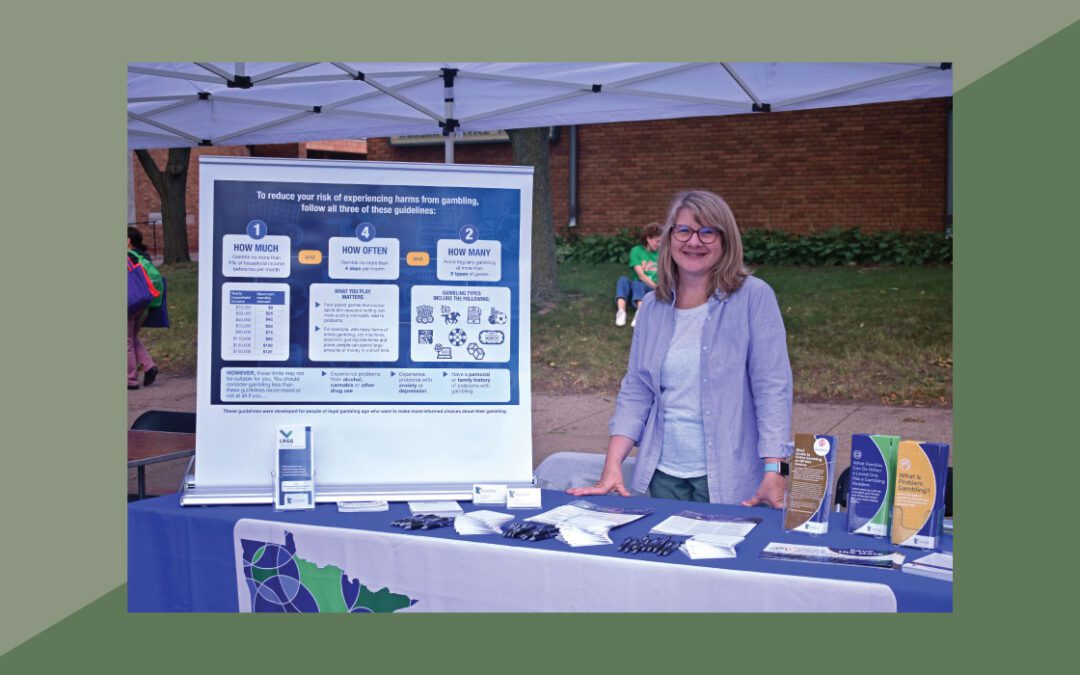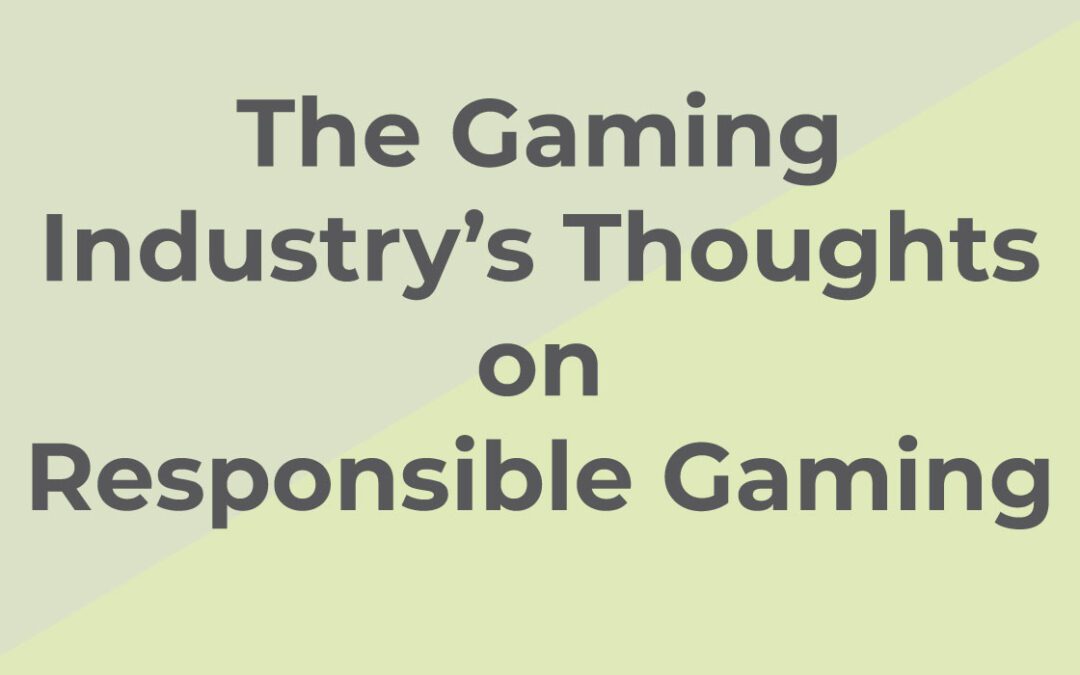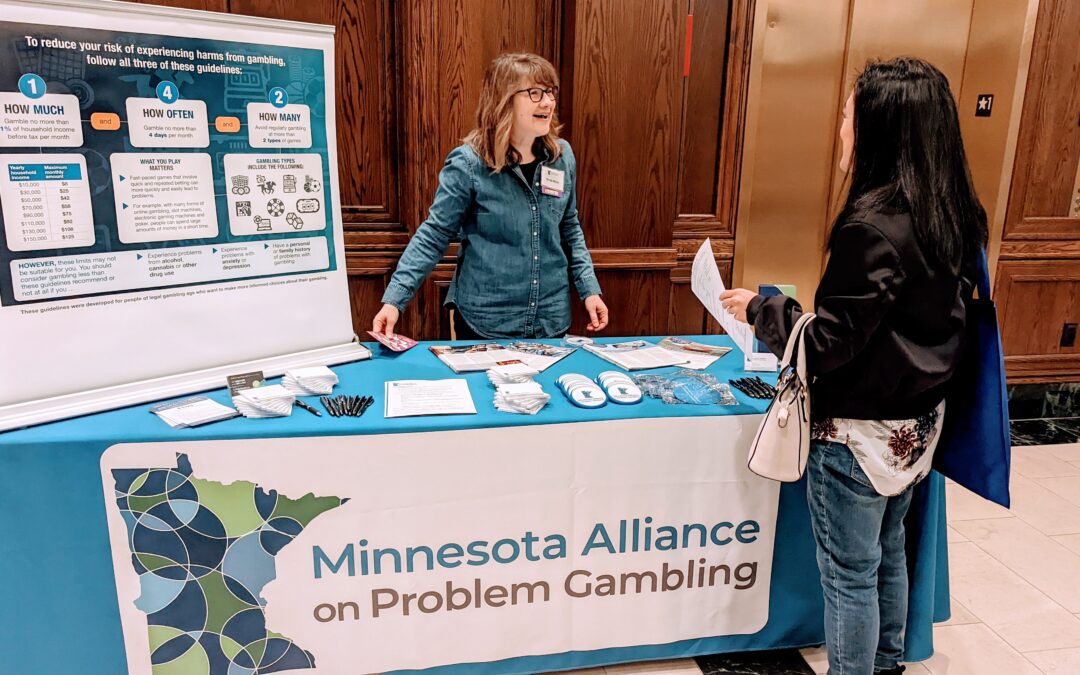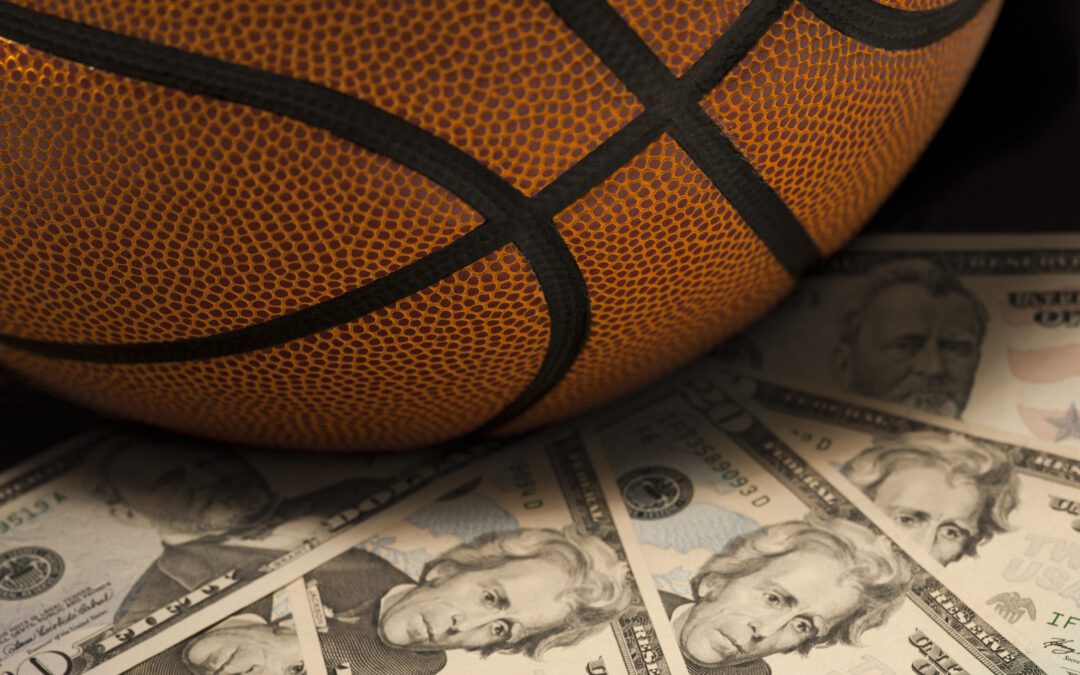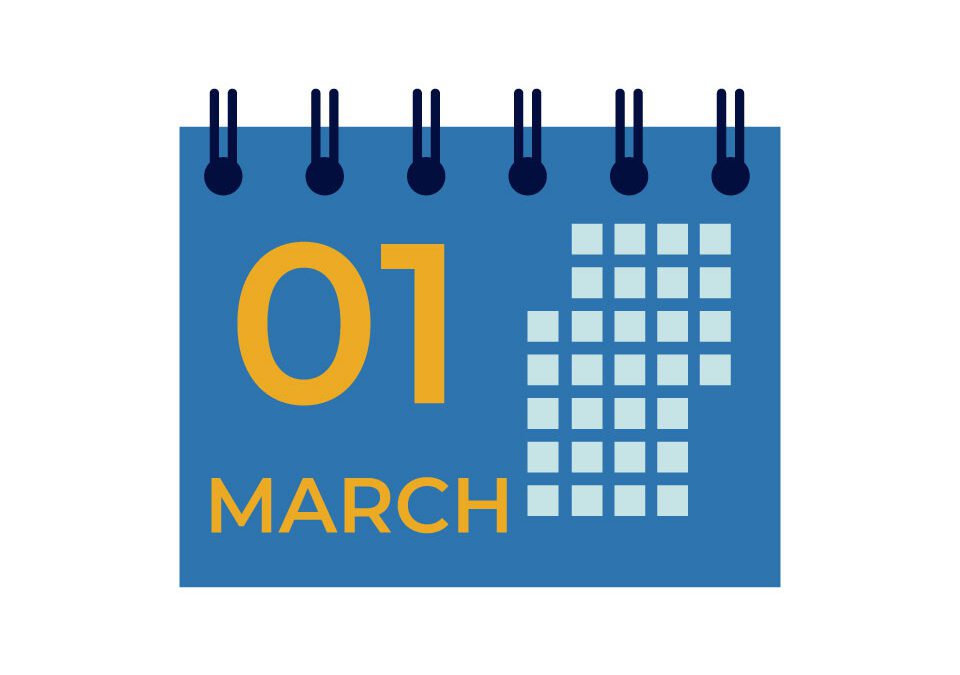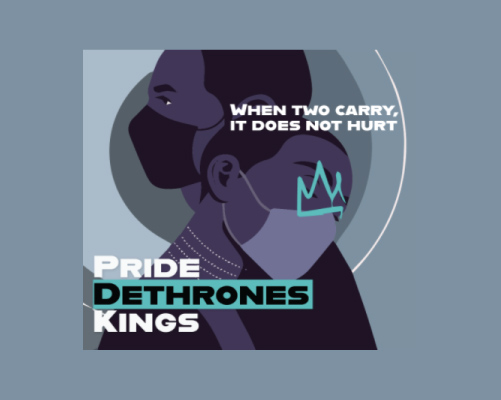
Oct 17, 2022 | ADVOCACY
Minnesota Alliance on Problem Gambling community educator Sonja Mertz provides a glimpse into what it’s like fielding a range of conversations when she exhibits around the state.
When I work an exhibit table, I never know what to expect when people approach me. I receive a variety of comments. Some people will tell me, “Life is a gamble.” Others just want to make conversation. “I don’t have a problem with gambling,” they’ll tell me, or “I only take $100 to the casino and when it’s gone, I leave.” Some people might think I am taking an informal inventory on gambling habits. “I’m worried about my mom’s gambling.” Some people are looking for resources…something to encourage a conversation with a loved one. Still others are close, but not quite ready to get the help they need, saying, “I know I have a problem, but I’m having too much fun right now.” Some people need someone to be real with…someone who knows the language. And sometimes I purposely walk away from the table to give the hesitant person a chance to pick up a brochure without having to say anything to the smiling lady who might look too eager to speak with them.
My recent opportunities to host exhibit tables have included some diverse events — a celebration of fathers and families in North Minneapolis, a resource fair for senior citizens in St. Cloud, a conference on Adverse Childhood Experiences for mental health professionals and educators, a resource-sharing celebration for people in recovery from substance misuse, and the Fiesta Latina in St. Paul. The attendees at these events might look different from each other, but their needs are the same. They are all interested in strengthening their communities and keeping their families and loved ones healthy. The conversations that I have at these events assist my work at MNAPG by helping me to understand what types of resources are needed in various communities and by helping our organization to shape future messaging about the harms of gambling and what should be done to reduce that harm.
I also had the opportunity in August to travel to some casinos in central Minnesota and meet with some Human Resources staff members. MNAPG provided boxes of our new brochures and new hotline stickers. Our hope is to build relationships with each casino in Minnesota to work toward maintaining healthy customers and provide resources for their patrons who need help with their gambling behavior.
September, October and November are the busiest conference months for MNAPG. Susan and I will be presenting and/or exhibiting at least twelve different events, not including stand-alone presentations and our own MNAPG Conference in November.
As varied as all these interactions may be, we look forward to having those conversations.

Oct 17, 2022 | ADVOCACY
Here are some common themes we noted from the gaming industry during Responsible Gaming Education Month, led by the American Gaming Association.
1. There is a widening consensus within the gaming industry acknowledging their role in minimizing gambling harms. Increasingly advanced technology is providing opportunities to create tools that could help better inform players of the risks they are taking in real time. If operators wish to sustain their business, adopting effective responsible gambling tools will be necessary. Customers will be expecting it.
2. The current thinking is that collecting a wide swath of information from every player will provide greater insights into their behavior and suggest how tools can be designed to minimize harms. Most commonly sited tools are money and time limits. Giving the player tools to set before play begins will offer a line of defense to prevent an individual from taking too many risks. As technology advances, tools are available that learn how players use the machines. The information helps the operator better understand their customers’ behavior. Software already exists that allows an operator to provide a personalized message to each player based on their patterns of play.
3. Responsible gambling must also be raised for those who design games. If the gambling industry wants to continue being categorized as entertainment, games cannot be designed to be predatory. Stricter regulations must be developed to ensure the games that arrive on the floor of a casino or in an app are not designed to create harm.
4. Some in the gaming industry see the embracing of responsible gambling as a threat. It will take more time to convince certain operators that adopting effective responsible gambling tools will lead to greater sustainability of their operations. Partnerships between advocates of problem gambling, regulators, game developers and operators will be key to ensuring effective ways to minimize harm.

Aug 10, 2022 | ADVOCACY
As the pandemic turns endemic, MNAPG has had more opportunity to do in-person outreach. Here’s a look at some of the recent efforts undertaken by Sonja Mertz, MNAPG’s community educator, and Susan Sheridan Tucker, MNAPG’s executive director.
Presentations
º February 2022: A virtual presentation for 20 staff members of the University of Minnesota Duluth Health Services, which included nursing, mental health and administrative staff members.
º March 2022: Susan was excited to present to Kevin Spading’s class on Problem Gambling. Kevin has been on the forefront of presenting at least some content on problem gambling to his students for years. This year marks his first full semester offering problem gambling.
º April 2022: A presentation at the Metro State University Recovery Conference that focused on gambling and college students. The presentation was well received.
Exhibits
With conferences beginning to return to their normal formats, we had the opportunity to exhibit at the Minnesota Social Services Association and the Minnesota Psychological Association conferences this spring. In an effort to reach less traditional audiences, MNAPG has also been exhibiting at more community-based events, including senior citizen health expos, the Minnesota Parent Teacher Association Conference, the Military Mental Health Conference at Camp Ripley, and the Minneapolis Community Connections Conference.
A Seat at the Table
In April, Sonja had the opportunity to join the Minnesota Suicide Prevention Taskforce, housed under the Department of Health. This will be our opportunity to bring awareness about the impact that suicide plays in problem gambling and to ensure that language about problem gambling and gambling disorder is included in strategic planning for the
2023-2027 Minnesota State Suicide Prevention Plan.
Susan was recently appointed to the Hennepin County Local Advisory Council on Adult Mental Health. This group has been meeting for over two decades and has provided the county with significant feedback and input on its mental health services. As Hennepin County continues to identify where the gaps are in mental health services, Susan is advocating for awareness about the prevalence of co-morbidity of gambling disorder and mental health issues.
MNAPG will continue to explore opportunities in which we can be a voice at the table and increase awareness of gambling disorder.
If you’d like to have MNAPG provide a presentation to a group or at a conference, please contact Sonja Mertz at smertz@mnapg.org.

Aug 10, 2022 | ADVOCACY, PROBLEM GAMBLING
The 2022 legislative session ended without any action on the sports betting bill. There were significant differences between the bill approved by the House and the bill introduced in the Senate.
House Bill
The House bill would have made sports betting exclusive to the tribal nations, with revenue taxed at 10%. The revenue generated would be set aside to fund the implementation and adherence to compliance, with the remaining funds distributed as follows: 25% to the Department of Human Services; 25% to MNAPG for problem gambling prevention, training and research; and 50% to encourage sports participation among youth in marginalized communities. In addition, the bill would have increased the number of counseling hours allowed for families and included a qualitative and quantitative study of young adults 18 -35 years old, the most vulnerable group identified in sports gambling.
This bill added some significant responsible gambling language, which MNAPG had advocated. The bill also would have raised the legal age for online gambling to 21 from 18.
Senate Bill
The Senate bill moved to the Finance Committee in the last days of session. Some of the language incorporated into the House bill was included in the Senate bill, including changing the legal age for online gambling from 18 to 21, but with some significant differences. It added Canterbury Park and Running Aces as allowable license holders. While the tax rate was also 10%, revenue would have been distributed completely differently than the House bill. No funds were set aside specifically for problem gambling. Instead, one-third of the funds would go to the Department of Human Services for mental health purposes. The second third would be provided to charitable gambling organizations in an attempt to compensate them for having the much higher 35% tax rate. The last third would be used to support and attract sporting events to Minnesota, such as the Super Bowl.
MNAPG was extremely disappointed by the Senate bill and relieved that it did not progress. While we remain neutral on gambling expansion, we will fiercely advocate for the inclusion of best practices in responsible gambling and that significant funds be set aside for prevention, treatment and research. It’s disillusioning that Minnesota continues to deny the serious implications of gambling harms as it makes attempts to expand access to gambling. We will continue reaching out to the legislature to require sufficient funding for problem gambling and to mandate that regulatory language is used to help ensure that harms are minimized for all who choose to gamble.

May 25, 2022 | ADVOCACY, PROBLEM GAMBLING
MNAPG Northern Light Spring 2022
This March marked the nineteenth observance of the National Council on Problem Gambling’s (NCPG) Problem Gambling Awareness Month. Along with the 35 state affiliates, NCPG focuses extra efforts throughout the month to raise awareness that gambling addiction is a public health issue, to reduce its stigma and to emphasize that gambling disorder is a treatable and chronic condition.
For MNAPG’s part, we increased our public awareness campaigns through paid social media and the Star Tribune. NCPG provided a daily message which we coupled with an appropriate graphic and shared on our Facebook, Instagram, Twitter and LinkedIn pages.
We had several small campaigns using the Star Tribune’s digital reach and targeted emails. We ran a campaign focused on the problem gambler for the first half of the month, and then switched to a focus on sports betting to coincide with the heightened attention of the NCAA basketball tournament. These are examples of those ads:

Another annual campaign associated with PGAM is National Problem Gambling Screening Day, the second Tuesday in March, when we reach out to healthcare professionals in the substance disorder and mental health arenas to raise awareness that gambling addiction is often co-occurring. We try to emphasize that minimal screening would go a long way in helping those who may have a gambling problem seek the help they need. Unfortunately, most LADCs and social workers lack training in treating problem gambling and may not even be aware that it’s an issue to discuss with clients. We encourage them to ask the three brief bio gambling screening questions. If their client answers yes to any of the three questions, it’s recommended that the individual seek a more thorough assessment to determine if they have a gambling disorder or is at increased risk.
We also tried something new this year. We geofenced the capitol complex, meaning that anyone with a cell phone who entered the capitol, senate or house buildings would likely see one of our ads directed to legislators with some basic statistical information. We know that many state legislators know little about problem gambling, and as the body considers legalizing sports betting, we wanted to remind them of the issue. The success of this effort is unknown as of this writing as the analytics have not yet been processed. We will analyze this info and likely continue to nudge legislators as the bill continues to move through the body and as MNAPG proposes additional legislation.

Feb 23, 2022 | ADVOCACY, PROBLEM GAMBLING, RESOURCES
In the third of a series profiling organizations receiving grants from Minnesota’s Department of Human Services (DHS), this issue of Northern Light features Progressive Individual Resources, Inc.
Progressive Individual Resources, Inc. (PIR) is a multi-cultural provider agency that specializes in working with new African immigrant refugee children and their families to promote healthy social adjustment.
PIR’s DHS grant is for creating culture-specific gambling prevention programs. It’s focusing outreach on communities from the Sub-Saharan African region, including 46 countries with representation in Minnesota.
PIR is working to sustain a collaborative partnership with five leading African organizations, develop an engagement strategy consistent with the needs of the African community, and create a culturally relevant outreach and education strategy.
Some of the ways that PIR is seeking to achieve these goals includes:
- Extending outreach to new and established African communities
- Utilizing a culturally specific, community-based model and tailored approaches
- Engaging in culturally relevant community conversations about problem gambling and its effects
Dr. Richard Oni, Ph.D., PIR behavioral health consultant, and Bili Banjoko, M.A., LMFT, PIR psychotherapist, are performing the work. They have started by identifying communities in need, coordinating with their existing meeting schedules and making sure they connect with community spiritual leaders.
Not surprisingly, they have confronted some challenges and barriers as they seek to raise awareness about problem gambling and survey the communities to learn more about their gambling activities and attitudes. “We find that there are a variety of barriers, such as shame and trust, that keep people from speaking openly,” says Bili. “We’re also finding that people still don’t know that this is all confidential. We need to make sure community clinicians know this is confidential and that the community trusts us.”
“People are confused about the cost and whether it’s covered by insurance,” adds Dr. Oni. “Of course grants ensure that the service is free of charge even without insurance.”
“The more people hear about this, the more we think we can make an impact,” says Dr. Oni. “People continue to learn and we share new approaches with them, not just therapy. For example, if gambling issues are presented as part of cultural healing, they may be more apt to actively participate in it.”
PIR is using different communication modalities to spread the word as well as partnering with other organizations to develop messaging across different mediums. “We’ve learned to use language familiar to each community because language matters,” says Dr. Oni. “We try to express things in local dialect, which can help with participation.” There’s also the strategic use of proverbs that resonate to motivate and encourage community members. (See accompany graphics for examples.)
“You have to have awareness before you can start managing illness,” says Bili. “We’re happy now to provide both outreach and treatment.”
It takes time, but progress is being made. Dr. Oni says, “There is an African proverb that says, ‘If you want to go fast, go alone. If you want to go far, go together.’ Together we can provide resources to those who need it most and serve this community as effectively as possible.”
